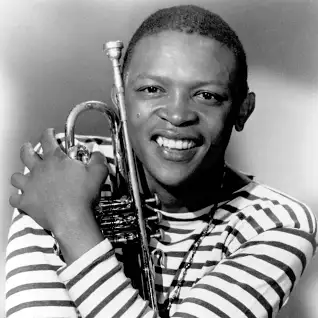
Hugh Masekela | Biography, Albums, & Facts
Hugh Ramapolo Masekela, born on April 4, 1939, in Witbank, South Africa, and passing away on January 23, 2018, in Johannesburg, was a legendary trumpeter, flugelhornist, composer, and anti-apartheid activist. Fondly known as the “Father of South African Jazz,” Masekela’s musical brilliance and unwavering commitment to social justice made him a global icon whose influence extended far beyond the realms of music.
Masekela’s musical journey began at a young age when he discovered the trumpet. Gifted with a natural talent for the instrument, he quickly gained recognition and, at the age of 21, left South Africa to pursue further studies at the Manhattan School of Music in New York. This move marked the beginning of a remarkable international career that would span over five decades.
In the early 1960s, Masekela became deeply involved in the civil rights movement in the United States. He collaborated with fellow musicians and activists, using his music as a form of protest against apartheid and racial injustice. His debut album, “Trumpet Africaine” (1962), reflected his fusion of jazz with African rhythms, setting the stage for a distinctive sound that would define his illustrious career.
One of Masekela’s most iconic compositions, “Grazing in the Grass” (1968), became a global hit and showcased his ability to blend jazz, pop, and traditional South African elements. The instrumental track, featuring Masekela’s signature trumpet, topped the charts and earned him international acclaim. His music, often characterized by infectious rhythms and soulful melodies, resonated with audiences worldwide.
Despite his success, Masekela never lost sight of his commitment to his homeland. His 1987 anthem “Bring Him Back Home” became a rallying cry for the global anti-apartheid movement, calling for the release of Nelson Mandela from prison. The song, along with Masekela’s tireless activism, contributed to raising awareness about the struggles in South Africa and the need for international solidarity.
Masekela’s return to South Africa in the early 1990s, following the end of apartheid, was a triumphant homecoming. He continued to use his music as a vehicle for social commentary, addressing issues such as inequality, poverty, and the challenges facing post-apartheid South Africa. His album “Hope” (1994) captured the spirit of the nation’s transition to democracy and reflected Masekela’s optimism for a brighter future.
Beyond his solo career, Masekela collaborated with a diverse array of musicians, from jazz legends like Miles Davis to rock icons like Paul Simon. His collaborations often transcended genres, showcasing his versatility and ability to bridge musical traditions.
Masekela’s impact extended to the realm of education and mentorship. He played a pivotal role in nurturing young talent and co-founded the Jazz Epistles, a groundbreaking South African jazz ensemble, in the late 1950s. Throughout his career, he continued to mentor emerging musicians, contributing to the development of the next generation of South African artists.
Despite his struggles with personal challenges, including substance abuse, Masekela remained a resilient and influential figure. His autobiography, “Still Grazing: The Musical Journey of Hugh Masekela” (2004), provided insights into his life, artistic evolution, and the complex socio-political landscape of South Africa.
In recognition of his contributions to music and social justice, Masekela received numerous awards and honors, including the Order of Ikhamanga, one of South Africa’s highest honors. His influence reached far beyond the borders of his homeland, earning him a place among the pantheon of global musical legends.
In his later years, Masekela continued to tour and record, maintaining a rigorous schedule that showcased his enduring passion for music. His final studio album, “No Borders” (2016), reflected his eclectic musical interests and commitment to pushing creative boundaries.
Hugh Masekela’s passing in 2018 marked the end of an era, but his legacy lives on. His impact on the world of jazz, his advocacy for social justice, and his role in the struggle against apartheid have left an indelible mark on South African and global history. The “Father of South African Jazz” will be remembered not only for his extraordinary musical contributions but also for his unwavering dedication to using music as a force for positive change in the world.


Leave a Reply